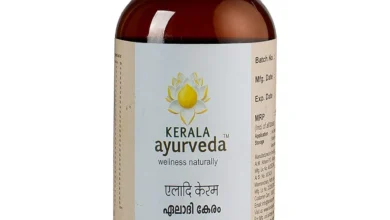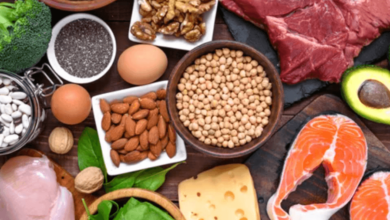Boost Your Health with the Right Protein Drink

In today’s fast-paced world, convenience and nutrition often go hand in hand. Among the many health supplements and dietary options available, a protein drink has become a staple for athletes, gym-goers, busy professionals, and even older adults looking to maintain muscle mass. The popularity of these drinks continues to rise due to their versatility, portability, and effectiveness. But what exactly makes a protein drink beneficial, and how can you choose the right one for your needs? Let’s explore this nutritional powerhouse in depth.
What Is a Protein Drink?
A protein drink is a liquid supplement designed to provide a concentrated dose of protein in an easy-to-consume form. It can come in various types including ready-to-drink bottles, powder mixes, or plant-based alternatives. These drinks are typically consumed to support muscle growth, aid in recovery after workouts, enhance weight management, or simply supplement one’s daily protein intake.
Why Is Protein So Important?
Protein is one of the three essential macronutrients, alongside fats and carbohydrates. It plays a critical role in building and repairing tissues, producing enzymes and hormones, and supporting immune function. Without sufficient protein, the body struggles to maintain muscle, energy levels, and overall health.
Those engaged in strength training or endurance sports often require higher protein intake to support muscle recovery and growth. Even individuals not involved in intense physical activity may benefit from a protein drink if they’re experiencing protein deficiencies due to dietary restrictions, age, or medical conditions.
See also: Noninvasive Prenatal Testing (NIPT): A Safer Way to Screen Your Baby’s Health
Types of Protein in Protein Drinks
There is a wide range of proteins used in protein drink formulations. Understanding the different types can help you select the one that aligns with your health goals.
1. Whey Protein
Derived from milk, whey protein is highly digestible and contains all nine essential amino acids. It’s commonly used for muscle building and quick recovery post-exercise.
2. Casein Protein
Also from milk, casein digests slowly, making it ideal for a sustained protein release, especially before bedtime.
3. Soy Protein
A plant-based protein that is rich in essential amino acids. It’s suitable for vegetarians and has been shown to support muscle growth similarly to animal-based proteins.
4. Pea Protein
Extracted from yellow peas, this option is hypoallergenic and suitable for vegans. It’s a good source of iron and works well for those with lactose intolerance.
5. Hemp and Rice Proteins
These are less common but increasingly used in vegan blends. They provide moderate amounts of protein and essential nutrients.
Benefits of Regularly Consuming a Protein Drink
✔ Muscle Growth and Recovery
One of the primary benefits of a protein drink is muscle repair and growth. After an intense workout, muscles develop microscopic tears. Protein provides the amino acids necessary to heal and strengthen those tissues.
✔ Convenient Meal Replacement
When time is tight, a protein drink serves as a convenient and nutritious meal replacement. Many are fortified with essential vitamins and minerals, making them a balanced option.
✔ Supports Weight Management
Protein promotes satiety — the feeling of fullness — which can help reduce overall calorie intake. When combined with exercise, it can support fat loss while preserving lean muscle.
✔ Enhanced Metabolism
Since protein takes more energy to digest compared to fats and carbohydrates, consuming protein can slightly boost your metabolism. This thermic effect of food can help with weight management goals.
✔ Helpful for Aging Populations
Older adults often experience muscle loss, known as sarcopenia. A protein drink can support muscle preservation, bone health, and mobility in aging individuals.
How to Choose the Right Protein Drink
Not all protein drinks are created equal. When selecting one, consider the following factors:
➤ Protein Source
Choose a protein type that suits your dietary needs — whether it’s whey for fast absorption or pea protein for plant-based nutrition.
➤ Ingredients List
Avoid drinks loaded with added sugars, artificial flavors, and fillers. A clean label with minimal ingredients is usually a better choice.
➤ Protein Quantity
Depending on your goals, you may want a drink that offers between 15–30 grams of protein per serving. Athletes may need more, while a casual user may benefit from a lower dose.
➤ Added Nutrients
Some drinks are fortified with additional vitamins, minerals, probiotics, or fiber, providing more nutritional value in a single serving.
➤ Taste and Texture
You’re more likely to stick with a product that you actually enjoy drinking. Try different flavors and brands until you find one that suits your palate.
When Is the Best Time to Drink It?
Timing can influence the effectiveness of your protein drink:
- Post-Workout: Within 30–60 minutes after exercise is the prime window for muscle recovery.
- Meal Replacement: When you’re on-the-go or skipping a meal.
- Pre-Workout: Some consume protein before training to enhance performance and reduce muscle breakdown.
- Before Bed: Casein protein is great for overnight muscle repair and preventing catabolism.
Homemade vs. Store-Bought Protein Drinks
While store-bought protein drinks are convenient, making your own can be a healthier and more economical option. A basic homemade protein drink might include:
- 1 scoop protein powder
- 1 cup milk (dairy or plant-based)
- 1 banana
- 1 tbsp nut butter
- Ice or water for consistency
You can customize it with fruits, seeds, or greens to match your dietary needs and preferences.
Potential Drawbacks to Consider
Though protein drinks offer many benefits, moderation is key. Overconsumption can stress the kidneys, especially in people with pre-existing kidney issues. Some people also report bloating or digestive discomfort with certain types of protein (especially whey). Always check with a healthcare provider if you have medical concerns.
Final Thoughts
A protein drink can be a smart, convenient way to meet your nutritional goals — whether you’re aiming for better fitness, muscle gain, or overall health. With so many options available, there’s a suitable choice for nearly every dietary need and lifestyle. Just remember to read labels carefully, choose high-quality ingredients, and incorporate your drink into a balanced diet for the best results.




